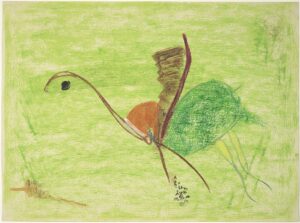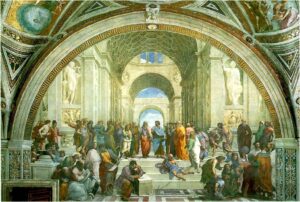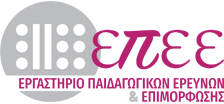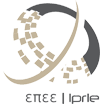Research Areas

Aesthetic education aims to enhance the learner’s ability to comprehend the meanings of various different modes of expression; that is, to understand and interact with figures full of meaning. Everything in the world has the potential to be viewed as a producer of such meanings, as a figure full of meanings or, put otherwise, as an aesthetical experience. The arts, however, are exactly those forms of intentional acts of figure creation that allow such meanings to emerge. As a result, learning of the arts is aesthetic education’s pathway to knowledge.
Aesthetic education and its goals may best be served by comprehensive arts education programs. Such programs, focusing on the unique character of the arts as meaning-givers, permit the cultivation of students’ ability to develop complete aesthetic responses, while, concurrently, revealing the complex (experiential-emotional and cognitive) nature of aesthetic perception overall.
 The anthropological approach allows us to study instituted educational acts holistically. In addition, in light of the fact that education takes place within a certain set of cultural trends, customs, lifestyles and worldviews, the anthropological perspective helps us better understand the overarching cultural environment they form.
The anthropological approach allows us to study instituted educational acts holistically. In addition, in light of the fact that education takes place within a certain set of cultural trends, customs, lifestyles and worldviews, the anthropological perspective helps us better understand the overarching cultural environment they form.
 Lifelong Learning refers to a holistic approach to the entirety of educational and learning activities and aims to combine them into a cohesive unit in a space-time continuum. Current research into lifelong learning encompasses issues such as how people shape and reshape themselves through learning and education, the processes through which perception and belief shift, the connections between the various systems of formal, non-formal and informal education, and the conditions for civil participation in educational activities.
Lifelong Learning refers to a holistic approach to the entirety of educational and learning activities and aims to combine them into a cohesive unit in a space-time continuum. Current research into lifelong learning encompasses issues such as how people shape and reshape themselves through learning and education, the processes through which perception and belief shift, the connections between the various systems of formal, non-formal and informal education, and the conditions for civil participation in educational activities.
 Early Childhood Education studies different approaches and highlights multiple factors that
influence, promote and enhance the teaching and learning of young children and at the
same time generates opportunities for discussion and reflection with future and in-service
preschool and early years teachers. In terms of research, Early Childhood Education covers a
wide range of concepts and procedures seeking to empower and support those involved in
the educational process: developing or reforming quality curricula, exploring children's and
teachers' ideas, implementing participatory pedagogical practices in education and
professional development, action-research, play and playful learning, differentiated
pedagogy, authentic assessment, teacher partnerships with each other, with children, with
families and other stakeholders. Alongside, issues concerning preschool teachers’ education
are studied with the objective of fostering creative learning environments.
Early Childhood Education studies different approaches and highlights multiple factors that
influence, promote and enhance the teaching and learning of young children and at the
same time generates opportunities for discussion and reflection with future and in-service
preschool and early years teachers. In terms of research, Early Childhood Education covers a
wide range of concepts and procedures seeking to empower and support those involved in
the educational process: developing or reforming quality curricula, exploring children's and
teachers' ideas, implementing participatory pedagogical practices in education and
professional development, action-research, play and playful learning, differentiated
pedagogy, authentic assessment, teacher partnerships with each other, with children, with
families and other stakeholders. Alongside, issues concerning preschool teachers’ education
are studied with the objective of fostering creative learning environments.
 Each culture and society develops its own physical practices which accompany the daily life and rituals of their members, comprise their history, dictate their understanding of the world and of “being” itself, define their identity and actively contribute to their education. Such physical practices may be observed in folk festivals, traditional celebrations and festivals. Other physical practices are dances, events, games, various forms of sports and exercise, body decoration, carnivals, outdoor activities just to name a few.
Each culture and society develops its own physical practices which accompany the daily life and rituals of their members, comprise their history, dictate their understanding of the world and of “being” itself, define their identity and actively contribute to their education. Such physical practices may be observed in folk festivals, traditional celebrations and festivals. Other physical practices are dances, events, games, various forms of sports and exercise, body decoration, carnivals, outdoor activities just to name a few.
OUR NEWS
- Carl, J., et al. (2023). Physical literacy in Europe: The current state of implementation in research, practice, and policy. Journal of Exercise Science & Fitness, 21(1), 165-176. https://doi.org/10.1016/j.jesf.2022.12.003
- Gandrieau, J. et at. (2023). Development of ELIP to Assess Physical Literacy for Emerging Adults: A Methodological and Epistemological Challenge. Research Quarterly for Exercise and Sport. https://doi.org/10.1080/02701367.2022.2125927
- Riga, V., Rouvali, A. (2023). Classroom Psychomotor Education Programme to Enhance Executive Functions: A Cluster Randomised Feasibility Trial. Youth, 3(2), 502-525. https://doi.org/10.3390/youth3020035
- Αποτελέσματα από την εφαρμογή του Ευρωπαϊκού Προγράμματος για την Προαγωγή της Ψυχικής Υγείας στα Σχολεία (Promoting Mental Health at Schools, PROMEHS). Δευτέρα 17 Ιανουαρίου 2022, 18:00-20:00. On line μέσω της πλατφόρμας zoom: https://upatrasgr.zoom.us/j/94011520944?pwd=Z2FWaHd0aHZWMVNISUVaWk5TSVBT... Οργάνωση: Eργαστήριο Παιδαγωγικών Ερευνών και Επιμόρφωσης, Τ.Ε.Ε.Α.Π.Η, Πανεπιστήμιο Πατρών.
- Riga, V. (2022). A children’s festival during the Covid-19 pandemic. European Journal of Education Studies, 9(4)





